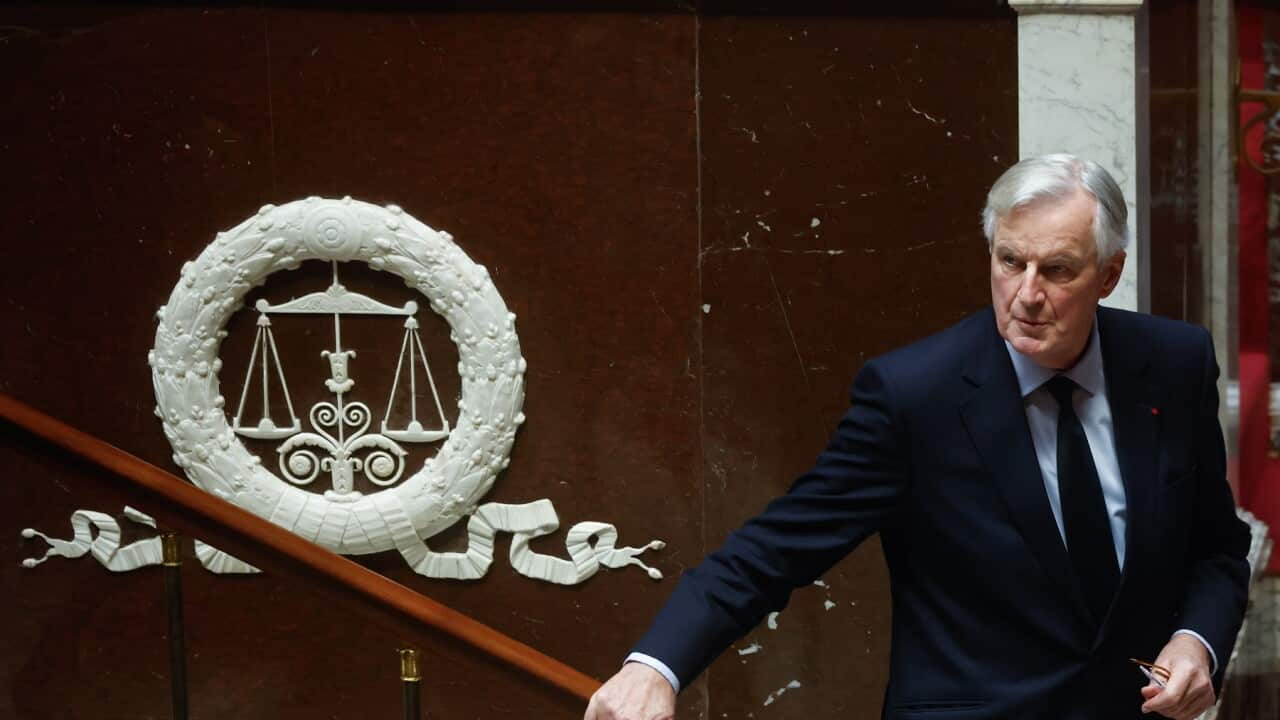TRANSCRIPT
French Prime Minister Michel Barnier has only held his position since September.
Appointed by French President Emmanuel Macron, it was believed he was the only man who could survive within France's deeply divided National Assembly.
But that hope is now riding on a miracle with the government on the verge of a total collapse.
The cause of the chaos lies with a social security budget bill.
The prime minister has used Article 49.3 of the constitution, sometimes known in France as the "nuclear option", to push the bill through parliament without a vote.
Speaking in parliament, Mr Barnier says the bill is an answer to calls for greater security.
"I think we have finally reached the moment of truth, which puts everyone in front of their responsibilities. It's now up to you, the nation’s lawmakers, to decide if our country adopts a responsible budget bill, indispensable and useful for our fellow citizens, or if we rather enter into unknown territory."
Article 49.3 has been used in the past, most recently in 2023 to push through Mr Macron’s deeply unpopular reforms raising the retirement age.
But using it can, and has, triggered a no-confidence vote.
Mr Barnier is now facing the French parliament which is split roughly between three equal blocs.
Together, the left and far right have more than enough votes to bring Mr Barnier down.
Leader of the Far Right National Rally party, Marine Le Pen, says the drastic action is justified.
"We are tabling a motion of censure and we are going to vote it because the French people have had enough. They have had enough of being thrashed. They have had enough of being mistreated. Some maybe thought that with Michel Barnier, things would get better, but they were even worse. We cannot leave the situation as it is."
French budget minister, Laurent Saint-Martin, has tried to sell the bill as hitting the middle ground and has urged politicians not to back the no-confidence vote.
"This is a good compromise. It is a responsible compromise that represents a real effort to slow down social spending, but a proportionate effort, which preserves our ability to protect the French people."
The bill sought to deliver $97 billion (€60bn) in tax rises and spending cuts.
But Mr Barnier gave in to changes demanded by critics due to his lack of a parliamentary majority.
These included scrapping a previously planned hike in electricity tax, as well as plans for a less generous prescription drug reimbursement policy from next year.
However, even the new version remains unacceptable to the opposition, with the National Rally joining the left in opposing it.
What happens next is far from clear.
The last time a government was forced out by a no confidence vote was 1962.
If the motion is carried when the vote is held on Wednesday, Mr Barnier will be forced to offer his resignation and President Macron will have to announce a new government.
But, having already called snap parliamentary elections in June, Macron cannot legally dissolve the National Assembly again until June 2025.
Analysts say that means France could effectively go into the new year without a budget and with a government stuck in caretaker mode.
As for the French themselves, law student Jeremy Bougean says the mess isn't unexpected.
"Personally, it doesn't worry me too much because I tell myself that, without taking a position, you reap what you sow. Emmanuel Macron appointed a minister who was not chosen by the French people. Obviously, appointing a minister from the New Popular Front was very complicated given the current climate but it's not necessarily what people really had in mind. What is certain is that the will of the French people, neither on the right nor on the left, has not been respected and that leads to a dead end."













